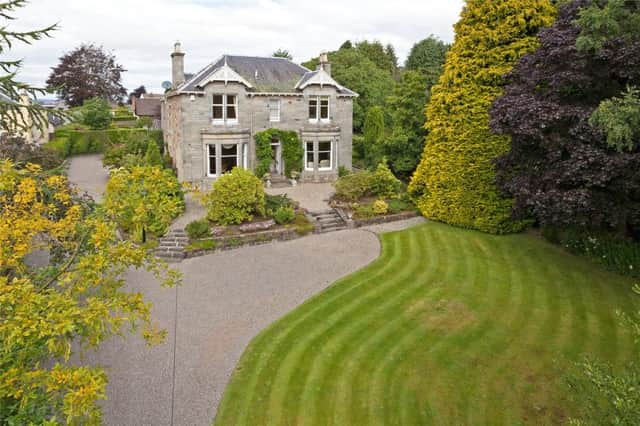House built by Napoleonic POWs on market for £500k


The Perthshire mansion dates back to 1815 when roughly 7,000 French soldiers were captured and held in the area.
The prisoners were put to work building the city’s jail during their time in captivity but they also helped construct several properties - including Orchard House.
Advertisement
Hide AdAdvertisement
Hide AdThe five-bedroom house in Scone is now on the market with a £500,000 price tag - and an interesting story to tell.
It was built for the Governor of the Perth Stockade by soldiers caught at sea and during land battles at Salamanca and Vigo in Spain.
They created a detached villa set within private grounds, boasting a gravelled driveway and landscaped gardens.
The house itself contains five bedrooms with three bathrooms, a pine staircase and a striking hallway with mosaic floor.
The master bedroom has a luxury en-suite and the family bathroom has a feature roll-top bath.
There is also a spacious dining area and kitchen which forms the hub of the home.
The house even boasts a detached cottage at the foot of the garden, with expired outline planning permission which new owners may wish to reinstate. The mansion is being sold by Aberdein Considine, with offers over £485,000.
The firm’s Perth property expert, James McKay, said the home is already attracting interest. “Buyers looking for a house with history should look no further,” he said.
Advertisement
Hide AdAdvertisement
Hide Ad“This is a period property of immense charm and has been much improved and upgraded by the current owners.
“Napoleonic Prisoners of War are known to have built a handful of properties in the area, but few remain in use.
“However, this house has been well looked after and remains a truly stunning home.”
According to local historians, the prisoners were well treated during captivity. They would make dolls from straw and carve ornaments from animal bones to sell to locals at a market held every Wednesday.
All of the French prisoners were repatriated after the Battle of Waterloo in 1815 with thousands of people from Perth turning out to wave them off.